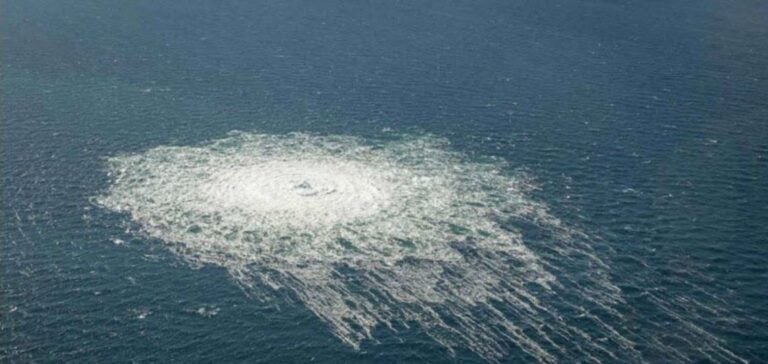On Thursday, the Ukrainian presidency strongly disputed the Wall Street Journal’s allegations that Ukraine had approved the sabotage of the Nord Stream gas pipelines, a strategic energy infrastructure linking Russia to Germany.
Presidential advisor Mykhailo Podoliak immediately reacted by calling the claims “absolute nonsense”, adding that such actions would have brought no practical benefit to Ukraine.
These accusations, based on anonymous military sources, implicate the highest Ukrainian authorities, including President Volodymyr Zelensky.
However, the Ukrainian government insists that these assertions are unfounded and are only intended to tarnish the country’s reputation on the international stage, especially in the midst of its war with Russia.
Impact on diplomatic relations
The German investigation into the sabotage of the Nord Stream gas pipelines continues to point in the direction of the Ukrainians, raising diplomatic tensions.
The Nord Stream 1 and 2 pipelines, although inactive at the time of the explosions in September 2022, represent a critical infrastructure for European energy supplies. These new accusations are likely to worsen relations between Kiev and its Western allies, at a time when Ukraine is heavily dependent on their support in the face of Russian aggression.
The Wall Street Journal claims that the operation was initially approved by President Zelensky, before he tried to cancel it under pressure from the US Central Intelligence Agency (CIA).
The report indicates that, despite this attempted halt, the operation was carried out under the supervision of the then commander-in-chief of the Ukrainian army, Valery Zaloujny.
Implications and outlook
These revelations add another layer of complexity to an already delicate investigation.
Sweden and Denmark, which initially carried out their own investigations into the explosions, ceased their inquiries earlier this year, leaving Germany to pursue the case alone.
Berlin continues to seek tangible evidence to establish the responsibility of the perpetrators, while Kiev persists in denying any involvement, claiming that the accusations are unfounded.
The lack of cooperation from certain neighboring countries, notably Poland, has also been singled out by the German authorities, fuelling speculation about possible negligence or complicity.
The results of the German investigation could have major repercussions on international relations, particularly in the context of the war in Ukraine and European energy issues.






















